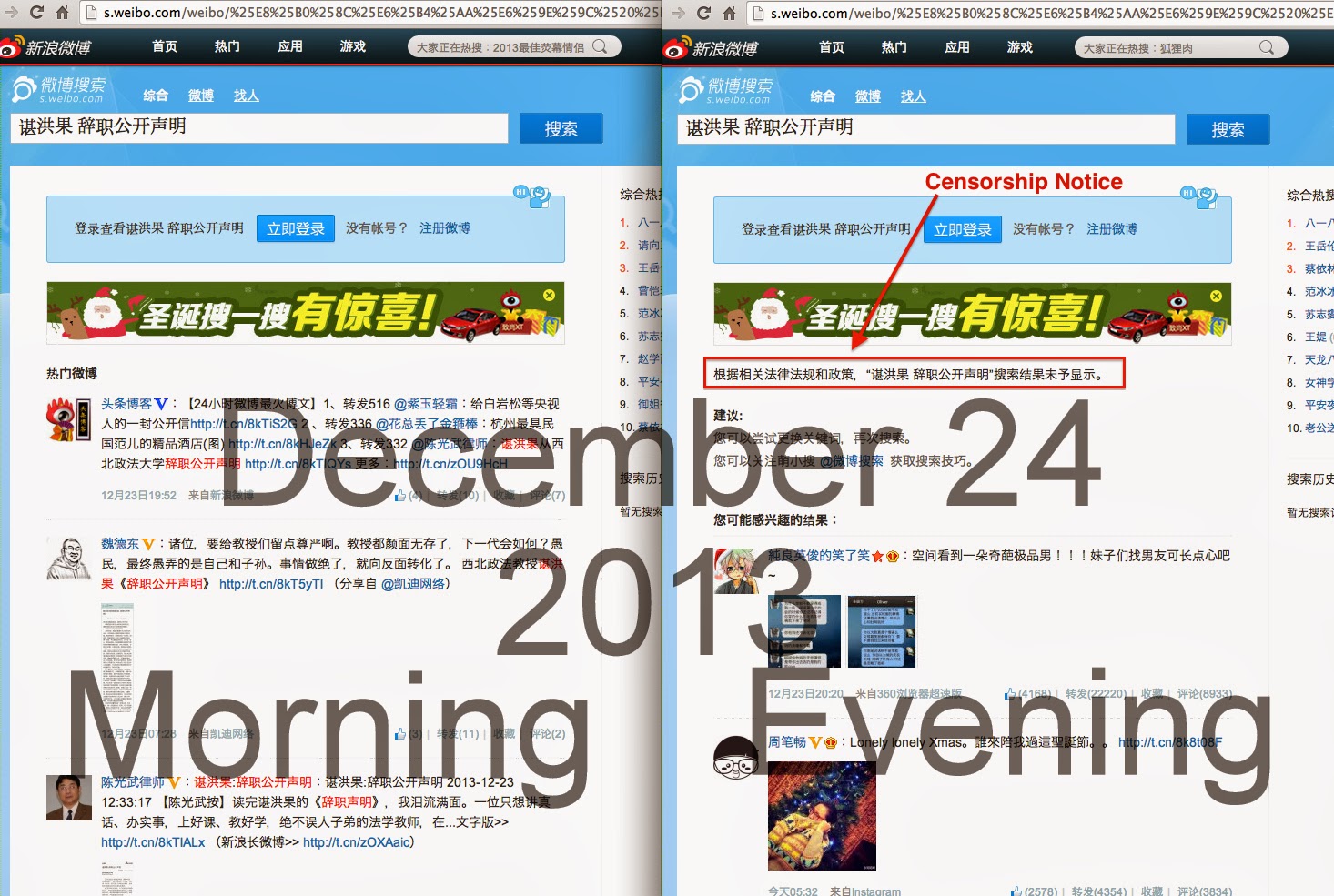On January 5, 2014, the state-sponsored Global Times published a letter from Chen Guangbiao entitled “I Intend to Buy The New York Times, Please Don’t Take It as a Joke.” An excerpt:
These screenshots show that the article, originally available here - http://news.xinhuanet.com/gangao/2014-01/14/c_126000961.htm - was subsequently deleted.
These screenshots were taken on January 15, and show that Sina Weibo was censoring searches for “Chen Guangbiao First Batch of Funds”(陈光标 第一桶金) and “Chen Guangbiao Cheats Hoodwinks” (陈光标 欺骗 忽悠).
I had the idea of purchasing The New York Times when I first placed an advertisement in it in December, 2012, claiming China's sovereignty over the Diaoyu Islands. I find Americans know little about a civilized and open China that has been enjoying unprecedented development. The tradition and style of The New York Times make it very difficult to have objective coverage of China. If we could purchase it, its tone might turn around. Therefore I have been involved in discussing acquisition-related matters with like-minded investors.On January 8, 2014, the Global Times published a report entitled “Chinese Businessman Helps Immolation Victims Undergo Surgeries in NY.”An excerpt:
Two former Falun Gong practitioners who suffered horrific burns after setting themselves on fire in Beijing in 2001 will undergo surgery at a hospital in New York, Chinese businessman and philanthropist Chen Guangbiao said Tuesday.On January 11, the Global Times published an editorial entitled “Diaosi, Goddesses and Rise of China.” An excerpt:
Chen said he was paying personally for a series of medical procedures the two women will receive. The total amount is expected to exceed $2 million, including traveling, lodging and some other expenses.
Chinese recycling tycoon Chen Guangbiao's high-profile attempt to buy the New York Times has drawn mockery both in China and abroad.On January 14, 2014, China’s official news agency Xinhua published an article entitled “A History of Chen Guangbiao’s Family Fortune: Selling Fake Medical Equipment Gained the First Batch of Funds” (陈光标发家史:卖假医疗设备赚第一桶金).
Some have compared the prestigious newspaper to a goddess and ridiculed Chen. A man who lives off "collecting waste iron and bronze" trying to touch their goddess? No way!
The metaphor well describes the West's image of itself. The West has led modern civilization for hundreds of years. It is no surprise that it looks down on the rest of the world.
These screenshots show that the article, originally available here - http://news.xinhuanet.com/gangao/2014-01/14/c_126000961.htm - was subsequently deleted.
These screenshots were taken on January 15, and show that Sina Weibo was censoring searches for “Chen Guangbiao First Batch of Funds”(陈光标 第一桶金) and “Chen Guangbiao Cheats Hoodwinks” (陈光标 欺骗 忽悠).









































